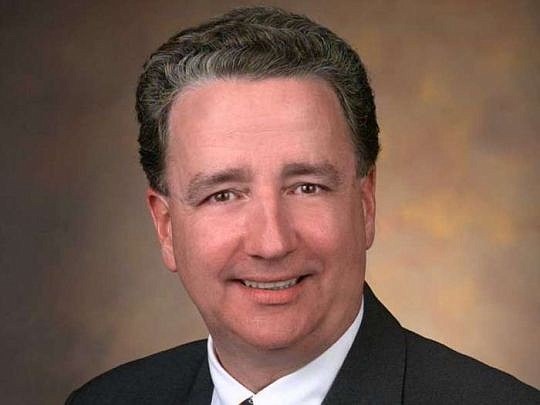
Power outages to more than 60 percent of JEA customers led to a dedicated, aggressive effort to restore service.
The dedication of the workers was praised Tuesday by City Council members.
The performance of JEA management was not.
The utility issued a notice Sunday saying power would be restored to all customers by 11:59 p.m. Monday, a deadline that wasn’t met and ended up backfiring on JEA.
As of Tuesday evening, about 30,000 customers still were without power, leading council members to question the self-imposed deadline. About 25,000 remained without power Wednesday morning.
“You overpromised and under delivered,” council member Matt Schellenberg told JEA CEO Paul McElroy during a wide-ranging update on the impacts Hurricane Matthew had to the city.
Schellenberg represents Mandarin, one of the harder-hit areas due to downed trees.
He spent time with JEA workers and saw firsthand the damage the storm caused. When the JEA deadline wasn’t met, Schellenberg said he was on the receiving end of many calls, text messages and emails asking for answers.
McElroy said the devastation to the city’s tree canopies caused slowdowns that weren’t anticipated when the deadline was announced.
“We blew it,” he told council members.
Other members shared Schellenberg’s disappointment, with council Vice President John Crescimbeni going a step further and asking JEA for a full report on the how and why of the deadline.
Like Schellenberg, Crescimbeni said he was surprised the utility set the deadline after seeing how bad some parts of the city were hit.
Mayor Lenny Curry asked people via Twitter on Tuesday to email him if they were still without power because he wanted to ask JEA why.
“The issue is we have tired, hot, thirsty, hungry folks without power that made decisions based on deadlines and they deserve answers,” he tweeted late Tuesday.
Council members had concerns outside of electricity, too.
McElroy reported the storm caused 72 sewage overflows because of the “devastating effect” Matthew had on some of the city’s 1,400 lift stations failing.
That sewage leaked into the ground and waterways.
Over time, the utility has managed to cut overflows to 30-35 a year. Having 72 in a three-day period, McElroy said, is “extraordinarily bad.”
“Any spill is unacceptable,” he said. “We will continue to do better.”
Notifying residents impacted was cause for concern by council member Scott Wilson, who said he found out about the problem on Facebook.
He wanted to see more done to inform people who could be impacted.
In all, McElroy said the storm caused about $30 million in damage to the utility's infrastructure.
It was a costly storm for the city, too, and numbers keep rising.
Sam Mousa, Curry’s chief administrative officer, provided an early overview of Matthew’s impact. Thus far, the city has spent about $2 million on contracts for cleanup, although it will “rise significantly,” Mousa told council members.
Preliminary estimates have it between $25 million and $100 million, with a better figure to be shored up in the next couple of weeks.
Some of the other numbers associated with the storm:
• Mousa said there is 800,000 to 1 million cubic yards of debris the city began cleaning up Tuesday. Residents are urged to move backyard debris to their curbs to ensure it’s picked up in the first wave of cleanup, which began Tuesday and will last at least 30 days. Debris will be collected by 250 trucks and taken to eight temporary sites across the city, but residents are not allowed to drop off their own debris there.
• The storm knocked out 250 traffic signals, 37 of which were still out as of Tuesday evening.
• About 60 percent of JEA customers lost power at some point. Just over 30,000 remained without power Tuesday evening.
• The Jacksonville Beach public pier lost 300 feet. A structural engineer and divers are being hired to assess the full extent of the damage before any repairs can be made.
Much of the costs is expected to be reimbursed by FEMA, with federal teams arriving in recent days to preliminarily assess the area.
@writerchapman
(904) 356-2466